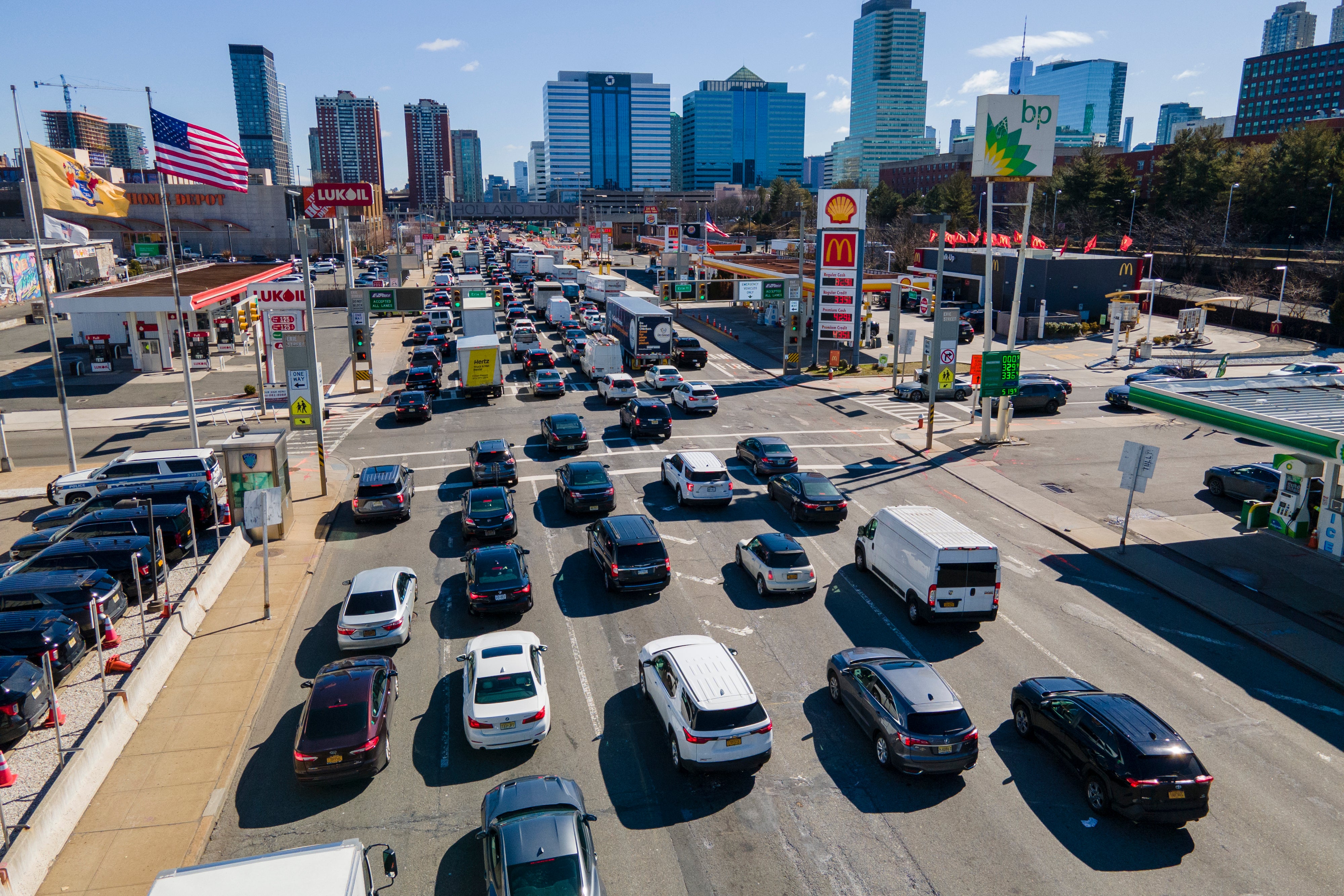Controversial congestion pricing in NYC begins on 30 June
The new congestion pricing plan, which was approved by the New York state Legislature in 2019, will be the first such program in the United States
Drivers entering New York City’s central business district will be charged a congestion pricing toll starting on June 30, Metropolitan Transportation Authority (MTA) officials have said.
The new congestion pricing plan, which was approved by the New York state Legislature in 2019, will be the first such programme in the United States.
It aims to ease some of the worst traffic in the nation, improve air quality, increase mass transit ridership and raise money to modernize the city’s subway, bus and commuter rail system.
It will charge most cars $15 for entering Manhattan below 60th Street during peak times. Tolls for trucks would be about $24 or $36, depending on their size, the New York Times reported. Taxi fares would increase by $1.25, and Uber and Lyft fares would rise by $2.50.
“Ninety per cent-plus of the people come to the congestion zone, the central business district, walking, biking and most of all taking mass transit,” Metropolitan Transportation Authority CEO Janno Lieber told WABC. “We are a mass transit city and we are going to make it even better to be in New York.”
The congestion pricing plan is expected to raise $1bn per year to fund public transportation for the city’s 4 million daily riders.

“We cannot drive our way out of the climate crisis, and congestion pricing will provide critical funding to upgrade our mass transit system, benefiting the millions of daily commuters across the region and encouraging countless more to ditch their gas-guzzling cars,” said Julie Tighe, president of the New York League of Conservation Voters.
According to a November report by an authority advisory committee, congestion pricing is expected to lower the number of vehicles coming into the zone by about 17 per cent.
It’s also supposed to divert drivers in an effort to avoid gridlock. However, some critics said this would only divert them to certain neighbourhoods, which would become dirtier from the increase in traffic in those areas.
Cities outside of the United States that have adopted congestion-pricing programs including London, Singapore and Stockholm, have reported sharp drops in traffic and congestion.
However, not everyone is in favour of the new plan.
New Jersey Governor Phil Murphy and others oppose it and have filed lawsuits seeking to postpone or halt the programme.
Those against it have argued the tolling fees will burden commuters who already pay bridge and tunnel tolls. And that prices for the goods transported by trucks will increase.
But MTA CEO Janno Lieber said he is “pretty optimistic” about how the New Jersey lawsuit will be resolved, the Associated Press reported.
He said congestion pricing will start at 12.01am on June 30, with the first users only being charged the nighttime fare of $3.75. The $15 toll will take effect at 9am.
The MTA also announced on Friday that low-income drivers can apply for a congestion toll discount on the MTA website and that disabled people can apply for exemptions.
Congestion pricing will be a win-win-win for all New Yorkers, commuters and visitors and will bring better public transit, cleaner air, and freer moving traffic,” according to Danny Pearlstein, a spokesman for the Riders Alliance, an advocacy group, who said in a statement that the start of the program “cannot happen soon enough.”
Join our commenting forum
Join thought-provoking conversations, follow other Independent readers and see their replies
Comments
Bookmark popover
Removed from bookmarks